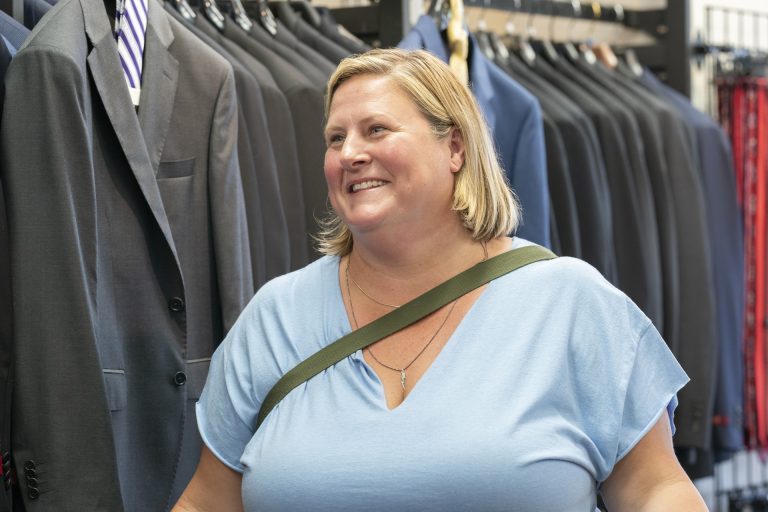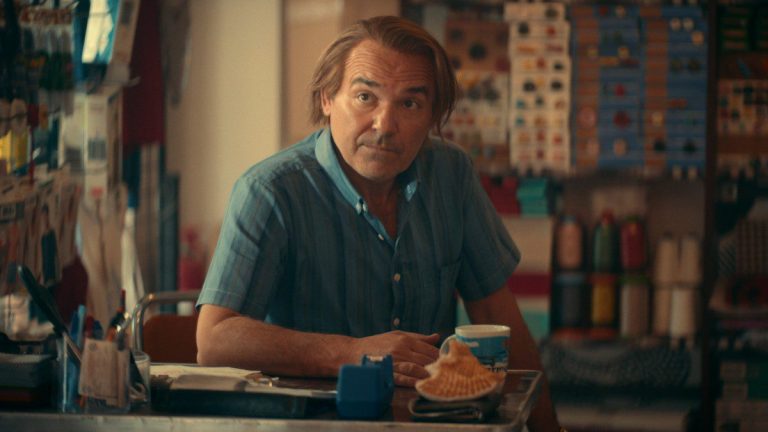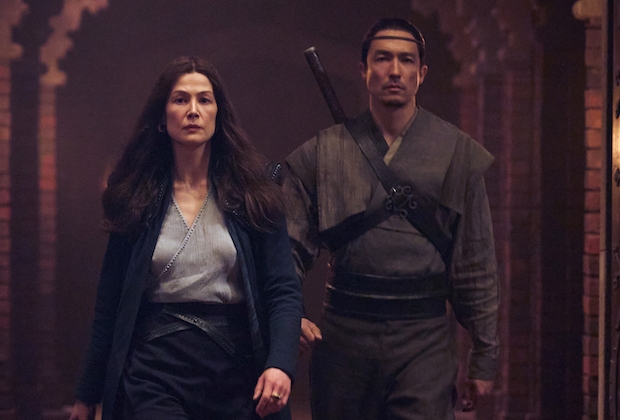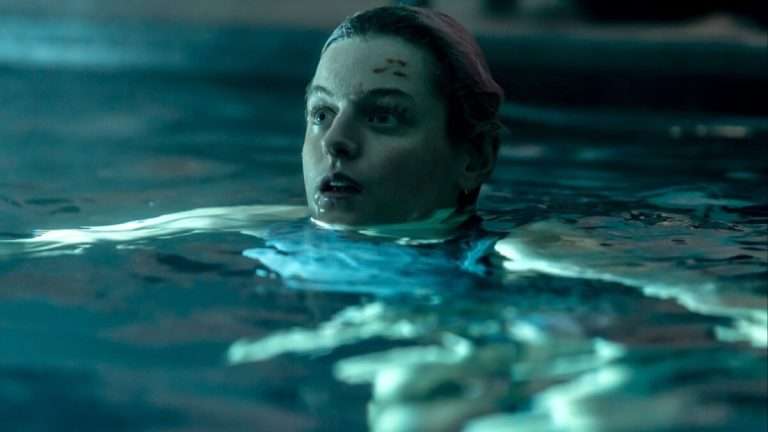The scariest things ever put to film are rarely those of the supernatural. It’s not a zombie, or a vampire, or even a ghost that provides the greatest horror, but rather when art is so painfully realistic that it becomes challenging to even continue watching. In her latest picture, “Die My Love,” Lynne Ramsay manages to capture just that – the suffocating reality that is postnatal depression and the challenges that come with being a new mother. She just so happens to do so in what is one of the most thrilling, darkly funny, gorgeously shot, and flat-out bonkers movies of the year so far.
“Die My Love” – Ramsay’s first flick since “You Were Never Really Here” back in 2017 – is an adaptation of Ariana Harwicz’s 2012 novel of the same name. As the story goes, the movie came to be after the legendary Martin Scorsese sent the novel to Lawrence’s production company after reading it in his book club, envisioning an adaptation for the big screen with Lawrence in the lead role. Just a few short years later, and Lawrence, along with Ramsay and her co-stars, has brought the story to life, devastatingly capturing the postpartum spiral that so many have to endure across its two-hour runtime.
Lawrence, in her leading role, gives perhaps the performance of her career up to this point. Taking major swing after major swing with her portrayal of Grace, dominating every scene she appears in, and placing herself at the centre of any conversations surrounding this year’s best actress award. Her portrait of a young woman in a state of psychosis, losing herself amidst the birth of her son, is worth the admission fee alone and demonstrates once again the sheer power of the actress when she’s at her best.

Lawrence is supported by the superb Robert Pattinson, who continues his streak of excellent performances and shows exactly why he is just about the most in-demand actor working today. In his role as Jackson – the well-intentioned but typically masculine husband – Pattinson provides the perfect foil for Lawrence in her starring role.
His inability to understand his wife and her struggles only further reinforces Grace’s sense of loneliness and continued spiral toward destruction. Pattinson’s ability to lose himself in his characters is always a joy to watch, making you forget that it’s even a Robert Pattinson performance you’re watching, but rather, simply a character brought to life as a person of his own.
Also Read: 10 Best Robert Pattinson Movie Performances
The likes of LaKeith Stanfield, Nick Nolte, and Sissy Spacek make up the rest of the cast, with each bringing a unique charm in their own right. Stanfield, in particular, in his role as Karl, is one of the many creative ways in which Grace’s descent is demonstrated visually. Karl, as a seductive and exciting figure, represents what she misses most about her relationship with Jackson prior to having a child.
Where once they shared unwavering sexual chemistry, they now find themselves distant – something Karl offers Grace an escape from, even if it is all make-believe. Stanfield’s limited screen time, however, could be seen as a drawback for some, given how captivating his presence is whenever he appears.
Another of the more fascinating ways in which Grace’s struggles are explored is through her relationship with the newest addition to the family: a dog that Jackson brings home late one evening. Though on the surface, Grace objects to the canine due to the difficulty of raising both a baby and a pet, if you look a little closer, it may appear that Grace actually sees much of herself in the pup.
The dog is seemingly in pain – barking, crying out, and in need of constant care. These piercing barks make for an uncomfortable watch, leaving us, as the viewer, wishing for the noise to finally come to an end and for normality to resume, representative of the intrusive thoughts that Grace has continued to struggle with since giving birth. In her mind, when she finally takes action and sets the pet free of its burden, what she showed was mercy, something that she longs for herself, and attempts to obtain with her numerous acts of self-violence across the film.
Must Check Out: Calling the Spade on Motherhood: 7 Watches and a Read to Cope With the Realities of Being a New Mother
You may think a story such as this leaves no room for comedic levity, but you’d be wrong – very wrong. “Die My Love” is, whilst yes, a deeply horrifying and profoundly disturbing portrait of a lady on fire, it remains somehow a genuinely hilarious comedy. Grace’s dry, and morbid sense of humour often leaves you feeling so uncomfortable to the point that it becomes amusing. Her deteriorating mental state renders her a woman unbothered by social etiquette or the opinion of others, making for some agonizingly awkward social interactions that you can’t help but laugh at.

It’s Ramsay’s navigation between genres in this way that makes the film such a home run, and is one of the more impressive feats from her career. The film exists in somewhat of a tonal no man’s land, unsure of which direction it plans to pull its viewer. It dips in and out of bleak comedy, tense thriller, and surreal fantasy seamlessly, with each shift reflecting Grace’s unstable and declining state of mind.
Visually, Ramsay and cinematographer Seamus McGarvey have treated us to one of the great spectacles of the year. Hectic camera movements and moments of stillness that create a sense of whiplash in the absolute best possible way, leaving you constantly on the edge of your seat across this panic attack of a movie. When paired with the thunderous sound design and wonderful needle drops, what you get is a cinematic experience that feels like no other this year – a visceral journey alongside this woman in freefall.
“Die My Love” ultimately manages to strike a balance between being a deeply challenging watch and something that you just can’t bring yourself to look away from. It’s brimming with colour and charisma, filled with massive moments that feel like some of the most monumental of the year, whilst managing to act as a dark comedy that will have you dying with laughter just moments before forcefully sinking you into your seat.
It’s an experience that can only be described as one that requires witnessing first hand, a wonderfully grim picture of the reality that can be postpartum motherhood, set against a gorgeous gothic backdrop, and anchored by a standout leading performance from Jennifer Lawrence.




![Grudge [2021] Netflix Review: An Awful Remake That Suffers from Bad Performances](https://79468c92.delivery.rocketcdn.me/wp-content/uploads/2021/10/Grudge-Kin-2021-Netflix-3-768x432.jpg)



